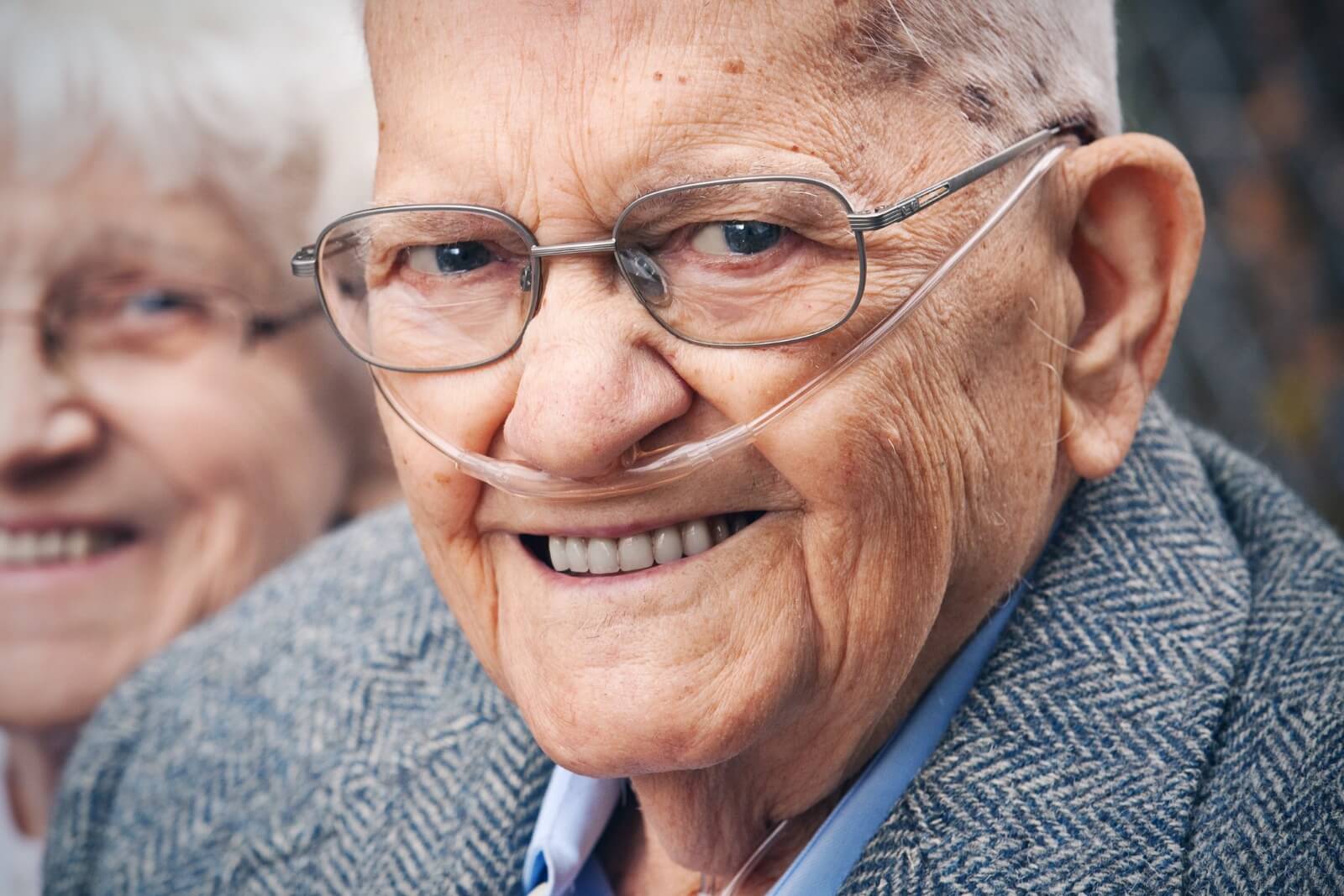
Maintaining a healthy diet can be challenging for older adults living at home. Although many seniors wish to age in place and experience the benefits of this living situation, they may struggle to get proper nutrition without support. The right foods and nutrition fuel our body, boost our immune system, improve brain function, and keep chronic conditions at bay. Here, we’ll describe some of the common mealtime challenges that older adults face while aging in place and offer ways to overcome them to maintain proper nutrition.
You may have noticed that your aging loved one is unintentionally losing or gaining weight. The National Institutes of Health reports that older adults who are both under- and overweight are at an increased risk of mortality and that malnutrition in older adults is now recognized as a challenging health concern for adults over the age of 65, resulting in physical decline and decreased quality of life. These concerns are caused or exacerbated by some challenges due to aging, especially for older adults who live at home alone or with a spouse who needs care. Here are the most common nutritional challenges facing older adults living at home and tips to maintain healthy eating for seniors.
Meal prep, freeze, and reheat when cooking for one
For many older adults living at home alone, cooking for only one person three times a day can seem overwhelming or even unrealistic, especially if they have spent much of their lives cooking for tables full of children, grandchildren, and guests. Learning how to shrink their favorite recipes to only one serving can feel like quite a difficult task.
Older adults in this situation might benefit from meal preparation, which is making large batches of meals and storing portions for easy reheating later on. Help your loved one select recipes that store well and learn how to refrigerate or freeze individual portions of those favorite recipes so they can grab them later. Invest in containers that hold the perfect portion for different types of meals so they can change the recipe every week. With meal preparation, your loved one can cook in the proportions they are used to but only have to do so every week instead of several times a day.
Instead of relying on processed foods of convenience, meal plan
Many seniors rely on the convenience of processed foods or take-out food from their favorite restaurants as their primary source of meals. While convenience foods certainly can be handy in a pinch, they aren’t a good foundation for a healthy diet. They are often high in calories, salt, sugar, or preservatives and lack the nutrients necessary for your loved one’s well-being.
Again, meal preparation could help seniors who regularly turn to convenience foods. Work with your loved one on developing a healthy meal plan of homemade foods ready to grab in the freezer, fridge, or cabinets. This approach might involve asking family members to assist with meal preparation for the week. You also might consider experimenting with meal subscription services that deliver ready-to-prepare ingredients. These services cut down on shopping and preparation time, allowing your loved one to eat a healthy home-cooked meal without as much trouble.
Meal delivery programs help beat cognitive challenges
Planning and preparing meals can be especially challenging for adults with cognitive decline. Meal preparation and planning are instrumental activities of daily living, or IADLs, which are the functional tasks everyone must do to maintain their household and routine. Meal preparation is one of the first IADLs to go when dementia enters the picture. Without being able to plan and prepare meals at home properly, the senior could end up eating too much or too little throughout the day.
If your loved one struggles with meal prep and planning, consider enlisting a meal delivery program like Meals on Wheels. Contact the senior services department in your loved one’s town to learn more about available services. You also might look into traditional meal delivery services that deliver prepared meals to your loved one’s home. Some delivery services send meals ready to pop in the microwave, so the older adult doesn’t have to do any shopping or detailed preparation.
Adjust cooking methods to accommodate mobility needs
Moving around the kitchen while preparing a meal is a lot of work, whether you realize it or not. You use gross and fine motor skills as you bend to get a pot, chop carrots and onions, and stir ingredients together. Seniors with mobility or balance challenges may find preparing a meal in the kitchen exhausting or even dangerous, as they might worry about falling or spilling hot food or liquid on themselves.
Help your loved one find a layout in the kitchen that works best for their needs. For example, can you move their most-used pans to the cabinet that is easiest to reach? Can you place a few easy-to-use appliances, like the toaster or air fryer, on the counter so that cooking meals becomes less taxing?
If you aren’t sure where to start, consider requesting an occupational therapy home visit from your loved one’s physician. They often have recommendations that make instrumental activities of daily living, like meal preparation, easier and safer, which can make healthy eating for seniors more attainable.
Use nutrition programs and budgeting to help pay for food
Adults living on a fixed income often worry about their budget, and with grocery prices increasing, your loved one might choose to buy less food at the store or eat less food in general. Unfortunately, undereating can quickly lead to nutritional complications.
Work with your loved one to determine what percentage of their income should go toward food. Consider coming over weekly to help them clip coupons or look for sales in local stores as they develop their grocery list. Other ways to save money include shopping in bulk or using recipes that incorporate less expensive ingredients.
Also, consider looking into government assistance programs, such as SNAP or the Senior Farmers Market Nutrition Program, that can help your older adult loved one access nutritious food.
Set a meal and exercise schedule to manage appetite changes
Some older adults find themselves not hungry enough throughout the day to eat at consistent times. This change in appetite can result from different aspects of aging, such as decreased taste, lowered physical activity, and the side effects of medications. Reduced appetite can lead to undereating or even binge eating at the end of the day.
Help your loved one set a meal and snack schedule. Add alarms to their smartphone or digital assistant device to remind them to eat at the specified times. If your loved one still isn’t hungry throughout the day, determine if they spend most of their time sedentary. If so, encourage them to incorporate a walk or some other physical activity into their routine. The activity could stimulate their appetite, which would, in turn, increase their nutritional intake.
Hire home care services to help grocery shop and meal prep
Your loved one might benefit from working with professionals and experts who are trained in healthy eating for seniors. For example, consider setting an appointment with a nutritionist experienced in senior health to lay out a meal plan tailored to your loved one’s preferences and needs. You can use their meal ideas to develop a grocery list that your loved one can use to make planning even more manageable. The nutritionist can also provide snack options high in protein and other nutrients, so your loved one has easy but nutritious food to turn to when they don’t feel like preparing a full meal.
For seniors who have more significant needs with meal planning and preparation, home care might be the best solution. Nonmedical home care agencies often offer meal planning and preparation services. These services involve a caregiver shopping for groceries, coming to the home to plan and prepare meals, and even portioning and labeling leftovers.
Healthy eating for seniors can be challenging but attainable. If you’re concerned about your older adult loved one’s dietary habits, consult their physician and experiment with different approaches to see which ones impact their overall health most. Knowing the different causes for nutritional difficulties seniors may experience can help you figure out how to ensure best that your loved one remains healthy while living at home.








